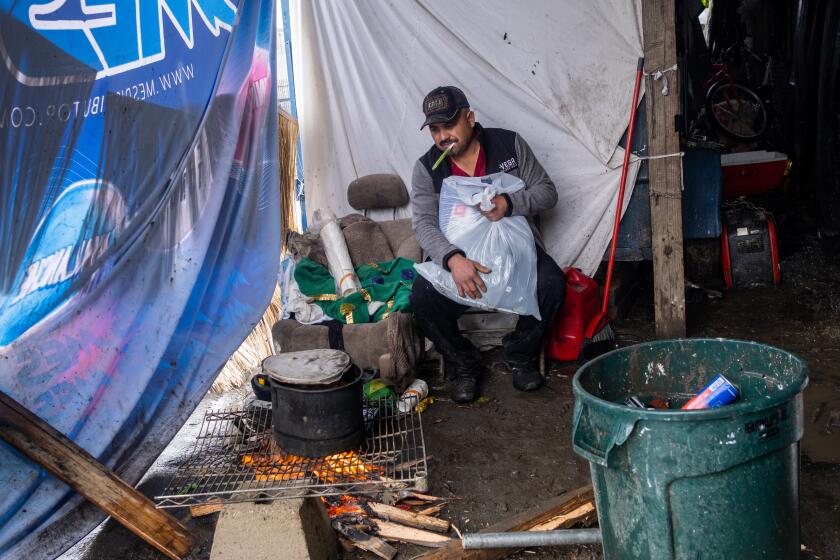Oxnard Mayor Urges Campaign Donation Cap
Saying he wants to erase any perception that Oxnard politicians are beholden to special interests, Mayor Manuel Lopez asked his fellow City Council members Tuesday for limits on contributions to candidates for municipal office.
The City Council voted 5 to 0 to accept Lopez’s suggestion to form a committee to study the idea and review what other California cities have done.
Lopez, a 17-year council veteran, said he would like to do away with growing public distrust in government--especially the view that developers and other special interest groups can buy clout in Oxnard.
But Lopez had no specific proposals to limit campaign contributions. He said he got the idea to raise the issue with his fellow City Council members from the Greater Oxnard Organization of Democrats and California Common Cause, a citizens watchdog group that tracks public spending.
Members of both groups and some residents said campaign contribution limits would help clean up the Oxnard City Council’s sullied image.
“It’s extremely important that the changes take place,” said Robert Holcomb of GOOD. “There is a great deal of cynicism attached to our election process.
“I’m not accusing any one (council member) of anything, but I do have some questions about how certain groups were able to gain favor over the consensus of the people.”
The Oxnard City Council considered several proposals to build a card club casino in 1993 despite widespread public opposition, leading to criticism that council members were catering to special interests.
Two of the men involved in the casino deal were eventually convicted of misdemeanor money laundering for funneling about $1,000 to council members and an assemblyman. The council eventually abandoned the casino proposal.
Councilman Tom Holden said campaign finance reform was worth considering, but he questioned Lopez’s motives for bringing the issue forward, accusing him of posturing early for the 1996 elections.
Council members said excessive campaign contributions were not a problem in Oxnard, but that they would consider restrictions if such measures would help improve their public imagine.
“The problem is perception,” Holden said. “It’s extremely frustrating when you hear insinuations that $1,000 or $500 can influence someone.”
Lopez defended his decision to discuss campaign contribution limits, saying it was not an attempt to paint himself as a more honorable person than his council peers.
“I don’t know how much further we could be from an election,” Lopez said in an interview before the council meeting. “I guess I should have brought it up the week after the elections last year.”
Only in special elections does California law limit the amount of money candidates can receive, according to the State Fair Political Practices Commission.
Campaign finance reform--a much-debated issue throughout the nation at all levels of government--has recently surfaced in several Ventura County cities.
In Ventura, Councilman Steve Bennett proposed a campaign contribution ordinance last year that would limit donations to $100 per donor or $20,000 overall. Candidates who agreed to spend $2,000 or less could accept donations of up to $200.
The Ventura City Council eventually opted to place the issue before the city’s voters on November’s ballot.
In Thousand Oaks, a proposal earlier this year by Councilwoman Elois Zeanah to discuss campaign finance reform in city elections failed to sway colleagues, who said campaign contributions were not a problem in Thousand Oaks.
Ventura’s 1993 council race was the costliest in city history, with 14 candidates vying for four seats. Candidates and political action groups spent more than $220,000.
In Thousand Oaks, 16 candidates collectively spent more than $213,000 running for three seats in last year’s elections.
By contrast, 11 candidates in Oxnard’s 1994 City Council race spent about $100,000 campaigning for office.
In Oxnard, an ordinance limiting campaign contributions would affect candidates running for the mayor, an election held every two years; the four City Council seats, which are elected every four years; and the City Treasurer and City Clerk posts, also elected every four years.
More to Read
Start your day right
Sign up for Essential California for news, features and recommendations from the L.A. Times and beyond in your inbox six days a week.
You may occasionally receive promotional content from the Los Angeles Times.






